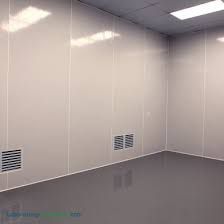 In a world where air quality and structural integrity are vital, homeowners face the constant challenge of mould and rust, particularly in humid environments. These two adversaries not only threaten the aesthetics of your living spaces but also pose health risks and maintenance challenges.
In a world where air quality and structural integrity are vital, homeowners face the constant challenge of mould and rust, particularly in humid environments. These two adversaries not only threaten the aesthetics of your living spaces but also pose health risks and maintenance challenges.
This blog post will explore how fibre-reinforced plastic (FRP) panelling serves as an effective solution to combat these issues, ensuring your home remains safe, clean, and vibrant.
Understanding the Threat: Mould and Rust in Humid Environments
Mould thrives in damp, warm environments, reproducing via airborne spores. It can significantly damage indoor air quality and cause health issues like respiratory problems and allergies. Prolonged exposure to mould can have serious health consequences.
Rust, on the other hand, forms from the corrosion of metal when exposed to moisture, creating an unsightly look and weakening structural integrity. Ignoring rust can lead to safety hazards and costly repairs, potentially causing significant structural damage over time.
Maintaining a moisture-resistant environment is crucial for homeowners in humid areas, making the choice of building materials essential.
The Moisture Resistance of FRP Panelling
FRP panelling, also known as FRP wall cladding, is engineered specifically for durability in wet and humid conditions. These panels are composed of a polymer matrix reinforced with glass fibres, granting them inherent moisture-resistant properties. This unique composition means they do not swell, warp, or rot like traditional materials when exposed to water.
FRP waterproof panels also have a non-porous surface that prevents water absorption, unlike wood which can decay. This makes them ideal for areas with constant water and humidity, reducing the risk of mould growth and maintaining structural integrity.
FRP panelling also proves highly effective in preventing rust formation, especially in areas with metal structures or components. FRP prevents corrosion by acting as a barrier against moisture, protecting underlying metal from rust, making it ideal for areas with frequent water exposure like bathrooms and kitchens.
Benefits of FRP Panelling in Humid Climates
When it comes to humid climates, the advantages of using FRP panelling are manifold. First, they contribute to maintaining a clean and hygienic environment. FRP’s smooth surface ensures a clean, hygienic environment by reducing dirt, grime, and bacteria buildup, making it ideal for high-traffic areas needing regular cleaning.
Moreover, FRP panels are an economical option for homeowners concerned about long-term maintenance and replacement costs. Investing in moisture-resistant materials like FRP reduces the need for frequent repairs, saving time and money. Its durability ensures a longer lifespan, making it a cost-effective choice for home maintenance.
Applications: Keeping Your Space Mould and Rust-Free
Indoor Pools
In indoor pools, FRP wall panels create a durable, waterproof barrier that prevents mould growth behind tiles, ensuring a safe and pleasant swimming experience.
Spas and Bathrooms
FRP is an excellent choice for shower walls, steam rooms, and saunas. Its moisture resistance not only allows for a clean-line aesthetic but also ensures longevity in wet environments.
Marine Settings
In marine environments, such as boat cabins and galleys, FRP’s resistance to moisture, salt, and corrosion makes it invaluable. The panels can stand up to the rigors of being at sea, providing safety and durability where traditional materials would fail.
Explore Canada Plastics’ Extensive Range of FRP Wall Panels
Invest in FRP wall panels to protect your home from humidity, mould, and rust. They offer long-term cost-effectiveness, easy maintenance, and health benefits. If you’re ready to transform your space and protect it from mould and rust, look no further than Canada Plastics and Belting Inc., a top FRP wall sheets supplier in Toronto. Contact us today!
